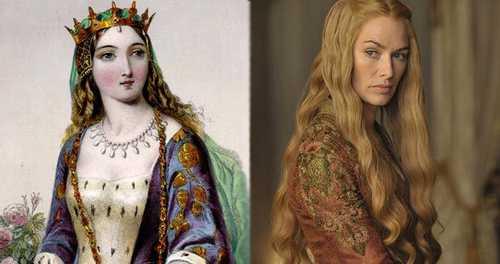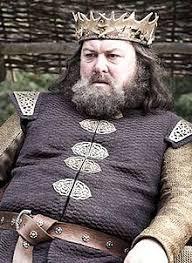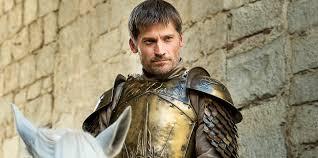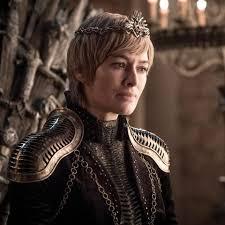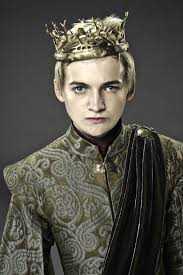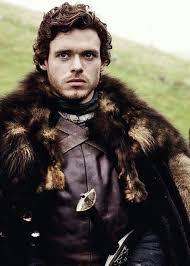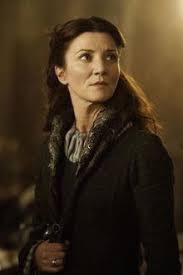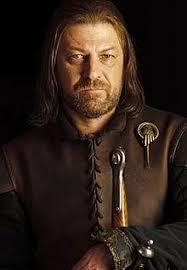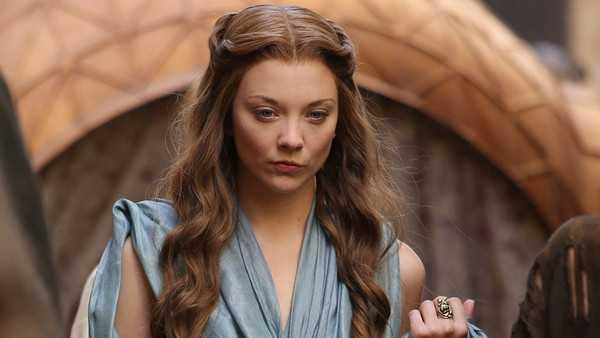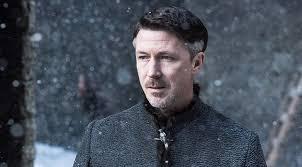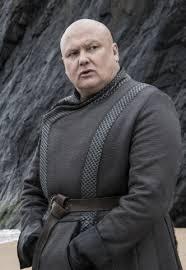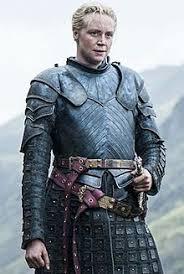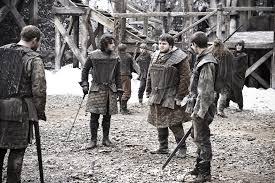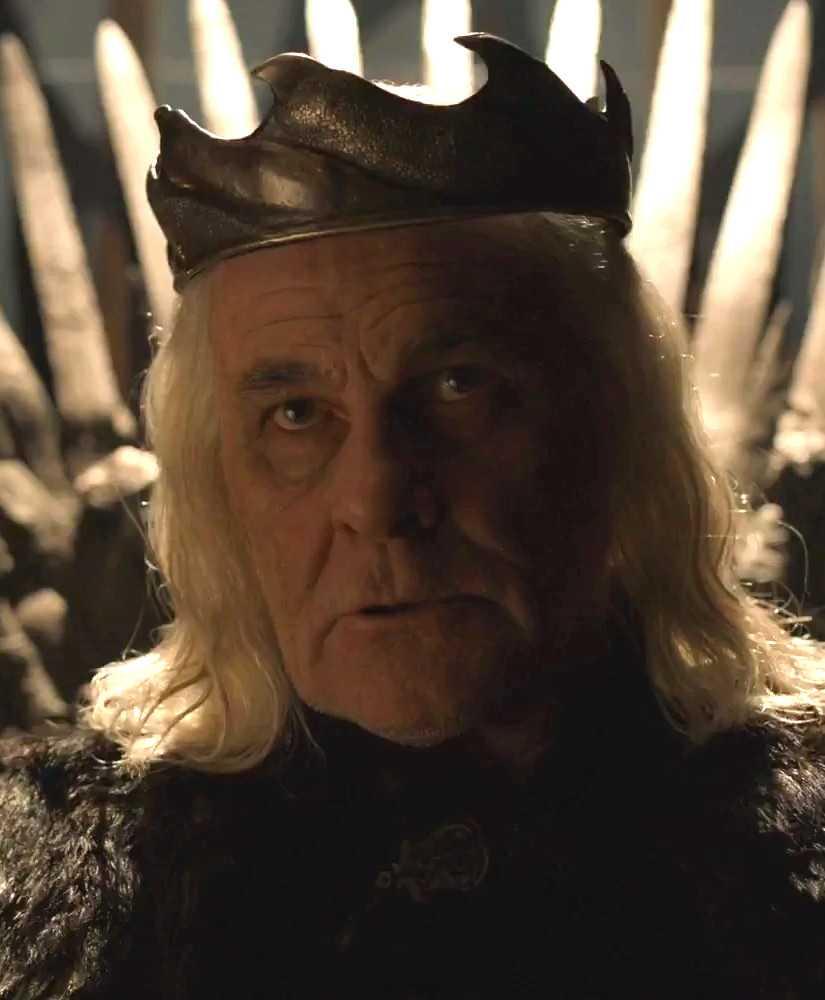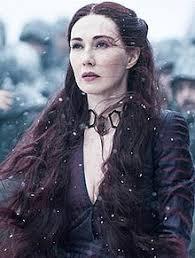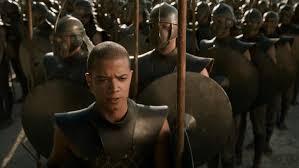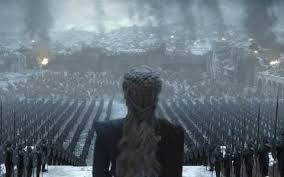Real Historical Figures Who Inspired Game Of Thrones Characters
Curated from: ranker.com
Ideas, facts & insights covering these topics:
22 ideas
·2.41K reads
4
Explore the World's Best Ideas
Join today and uncover 100+ curated journeys from 50+ topics. Unlock access to our mobile app with extensive features.
Robert Baratheon matches Henry VIII Of England
Henry VIII was a British King, best known for having 6 wives, 2 of which were beheaded.
Similarities
- Like Robert, Henry VIII was rather stout.
- Both enjoyed lavish celebrations and dangerous games of sport.
- Henry’s second wife, Anne Boleyn, was rumoured to have an incestuous relationship with her brother.
19
813 reads
Tyrion Lannister matches Claudius
Emperor Claudius was Rome’s fourth emperor.
Similarities
- Claudius was looked down by his family because he had a speech impediment and a limp. Tyrion’s family literally looked down on him because of his size.
- Both proved themselves to be brilliant politicians and administrators.
18
94 reads
Jaime Lannister matches Cesare Borgia
Cesare Borgia is the son of Pope Alexander VI who resigned from the cardinality to become a military commander and powerful lord.
Similarities
- Like Ser Jaime Lannister, Cesare was known for his many betrayals including the alleged murder of his brother.
- Cesare was also rumored to seduce his younger brother’s wife and to have an ongoing sexual relationship with his sister.
20
141 reads
Catherine De' Medici and Margaret of Anjou inspired Cersei Lannister
- Catherine De' Medici was born to nobility and married King Henry II of France. Similarities: Both Catherine and Cersei were paranoid and ruthless when protecting their families.
- Margaret Of Anjou was the Queen of England by marriage to King Henry VI. Similarities: Much like Cersei Lannister, she was married off to create an alliance.
20
99 reads
Caligula and Edward, Prince of Wales inspired Joffrey Baratheon
Caligula was Rome's most tyrannical emperor. Similarities with Joffrey:
- Both vicious and hated.
- Both boys came into power at a young age and both loved to wield their power by tormenting others.
- Both fond of spending tons of money on ridiculous spectacles.
- Both were killed before they were old enough to become men.
Edward, Prince of Wales - possibly illegitimate son of King Henry VI and Margaret of Anjou. Similarities with Joffrey:
- Both illegitimate.
- Both found their own ways to nurture their madness.
21
65 reads
Robb Stark matches Edward IV Of England
Edward IV was king of England. He was a key figure in the conflict known as the Wars of the Roses. Similarities
- Edward IV was given the crown after his father was beheaded, just as Robb became King of the North after Ned faced the same brutal fate.
- As kings, Edward and Robb fought on the battlefields during their respective civil wars and tried to avenge their families.
- Both men were extremely close to their mothers, who yielded more influence than any political advisors.
18
60 reads
Catelyn Stark matches Cecily Neville, Duchess Of York
Cecily Neville was the wife of Richard, Duke of York, and the mother of two kings of England, Edward IV and Richard III.
Similarities
- Both women followed House Tully’s motto of “Family, Duty, Honor,” which made their sons’ decisions to abandon their betrothal promises nearly unforgivable.
17
134 reads
Ned Stark matches Richard III Of England
Richard III was king of England for two turbulent years, best known for being accused of murdering his nephews to protect his throne. Similarities
- Both men were popular in the North, led their people with peace, and believed in loyalty above all other things.
- Richard lived by the motto “Loyalty binds me” and Ned followed the same unspoken words.
16
59 reads
Sansa Stark matches Elizabeth Of York
Elizabeth of York was the wife of Henry VII, and mother of Henry VIII. Similarities:
- Just as Sansa spent her younger years twirling around and dreaming of a happily ever after royal wedding, Elizabeth practiced the grace, obedience, and vanity expected of any future queen.
- Both girls were tall, had skinny statures and golden-red hair.
18
93 reads
Margaery Tyrell matches Anne Boleyn
Anne Boleyn was Queen of England as the second wife of King Henry VIII. She was found guilty of charges including adultery, incest and conspiracy against the king and was beheaded.
- Since Robert was dead, Margaery settled for his highly illegitimate son – even though he was betrothed to Sansa Stark.
- Margaery probably would have lost her head just as Boleyn did if Joffrey wasn’t poisoned on their wedding day.
- Margaery had to restart the tedious process of trying to become the queen again, but she found her way to the throne next to the naïve King Tommen pretty quickly
17
77 reads
Littlefinger matches William Cecil, 1st Baron Burghley
William Cecil, 1st Baron Burghley was the longest-serving minister of any of the Tudor monarchs. Similarities:
- William Cecil was born into a simple life and climbed the social hierarchy using his inherent abilities to think ahead and give good advice.
- Born into a fairly low position, Littlefinger moved his way closer to the Iron Throne by talking and aligning himself with all the right people.
17
46 reads
Varys matches Francis Walsingham
Sir Francis Walsingham was the principal secretary to Queen Elizabeth I. Similarities:
- Francis Walsingham had a gigantic network that kept him in the know of everything that happened.
- Similarly, Lord Varys has his “little birds”, who are mostly underprivileged children who reveal information for sweet treats.
17
56 reads
Elizabeth I Of England and Genghis Khan inspired Daenerys Targaryen
- Queen Elizabeth I reign is referred to as England's Golden Age, an era of peace and prosperity: Both queens enjoyed the company of lovers but neither was willing to jeopardize her quest for domination by taking on a potentially dominating husband; Elizabeth had her friend and advisor Robert Devereaux executed for trying to orchestrate a rebellion behind her back, similar to how Daenerys banished Jorah Mormont of House Friend Zone after she learned of his role as a spy.
- Genghis Khan was the founder and first Great Khan of the Mongol Empire: like the Dothraki, the Mongolians were once scattered across the Eurasian Steppe in small hordes until they were united by a charismatic leader bent on invading another continent.
- Genghis Khan and his Mongol Empire, unified in the 13th century, sought to expand into Europe, while Daenerys Targaryen set her eyes on Westeros.
18
45 reads
Brienne Of Tarth matches Joan Of Arc
Joan of Arc is one of the most famous female warriors in history. Similarities
- Joan of Arc had to convince Charles VII of her worth, whereas Brienne had to prove herself to Prince Renly.
- Both Joan of Arc and Brienne preferred to wear masculine clothing
- both were most comfortable in a suit of armor whilst wielding a sword.
16
49 reads
The Night’s Watch matches The Knights Templar
The Knights Templar protected European travelers visiting sites in the Holy Land while also carrying out military operations:
- Both groups are charged with protecting a realm against outside invaders,
- both are led by an elected leader who serves for life.
- Both would eventually fall into disrepute after storied histories.
17
42 reads
Mad King Aerys matches Mad King Charles VI
Charles VI of France was called the Beloved and the Mad.
Similarities:
- King Charles was known for his paranoid psychosis, which caused him to see enemies everywhere and punish them harshly. Mad King Aerys II of Westeros was prone to similar outbursts.
- Both kings had a connection with fire - Aerys was obsessed with it, Charles VI nearly burned to death as a youth.
17
111 reads
Aegon The Conqueror matches William The Conqueror
The historical parallels between the two isn’t just obvious to readers—George R.R. Martin has straight-up said that Aegon’s story was inspired by William. Similarities
- Both were overseas invaders who bent an entire continent to their will. In the case of Aegon, it was Westeros, and for William it was England.
16
38 reads
Melisandre matches Rasputin
Rasputin was a Russian mystic and self-proclaimed holy man who befriended the family of Tsar Nicholas II, the last monarch of Russia. Similarities
- Plots are made to take this alleged magician out, but they demonstrate an uncanny ability to cheat death.
17
65 reads
Julius Caesar and John Stark inspired Jon Snow
- Julius Caesar was a Roman politician, military general, and historian. Julius Caesar and Jon Snow do not share identical life stories - although both were born into prominent families before joining a military service - but they do share identical death stories
- John Stark served as an officer in the British Army. The stories and names of Jon Snow and John Stark are so similar, it seems almost impossible that George R.R. Martin wasn’t at least partially inspired his life: Stark was adopted into a tribe he was captive to. Later on as a free man he refused to take part on a raid against the tribe. Jon Snow’s shows conflicted loyalties when fighting the Wildlings.
18
54 reads
The Unsullied match The Ottoman Janissaries
The Janissaries were an elite corps in the Ottoman Empire.
Similarities:
- The Janissaries specialized in providing personal protection for various sultans, just as Grey Worm and his troops guard Daenerys wherever she goes.
15
56 reads
Loras Tyrell matches Piers Gaveston
Similarities:
- Both were known for their skill and agility,as well as their militaristic ingenuity
- Both rose to prominent positions due to their abilities
- Both were gay, and both had serious romances with royal partners
18
139 reads
Games of Thrones inspiration
A main ingredient in George R.R. Martin's fantastical concoction is the medley of historical figures who inspired Game of Thrones.
When Martin first started writing the book series, he drew a lot of his inspiration from the people and events surrounding the War of the Roses. Influences weren’t confined to that era, nor were his characters necessarily linked in the same ways as their historical counterparts. Instead, he blended bits of history all around the Westeros map, picking and choosing the traits he would use and discard from the historical figures who inspired Game of Thrones.
24
77 reads
IDEAS CURATED BY
Michelle A.'s ideas are part of this journey:
Learn more about history with this collection
Creating a productive schedule
Avoiding procrastination
Prioritizing tasks effectively
Related collections
Similar ideas
7 ideas
1 idea
Why was Napoleon exiled and not executed?
Seek History
4 ideas
Parashuram Avatar - Sixth Avatar Of Vishnu | Dashavatar
THE HINDU SAGA
Read & Learn
20x Faster
without
deepstash
with
deepstash
with
deepstash
Personalized microlearning
—
100+ Learning Journeys
—
Access to 200,000+ ideas
—
Access to the mobile app
—
Unlimited idea saving
—
—
Unlimited history
—
—
Unlimited listening to ideas
—
—
Downloading & offline access
—
—
Supercharge your mind with one idea per day
Enter your email and spend 1 minute every day to learn something new.
I agree to receive email updates
